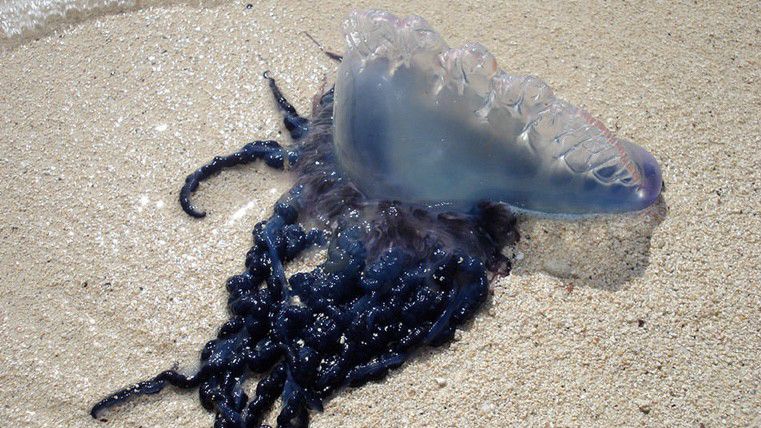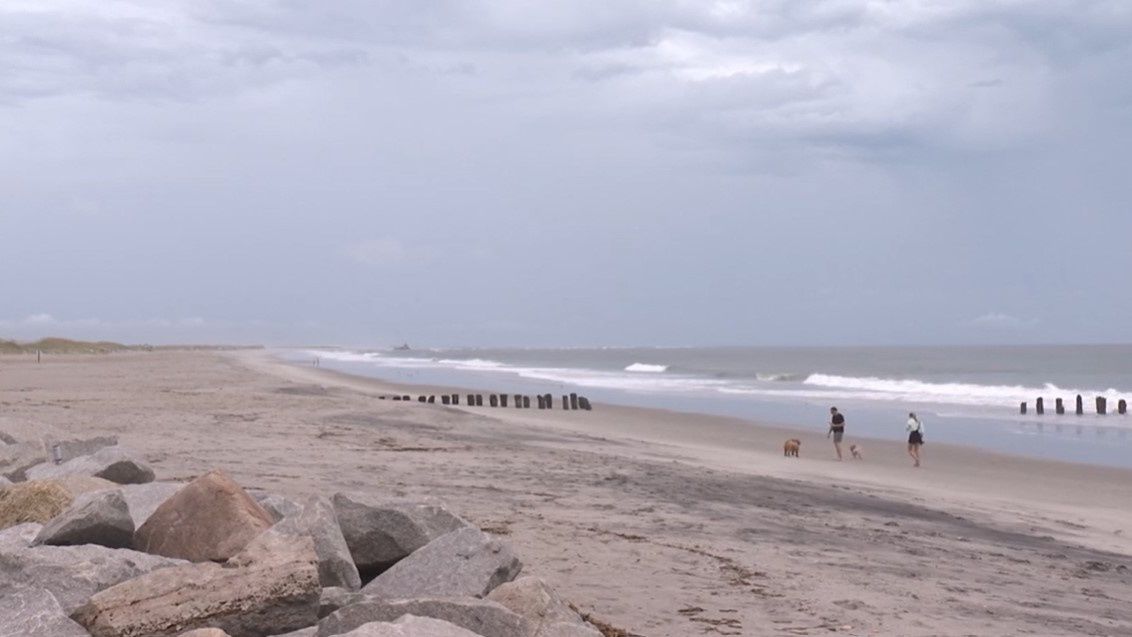GREENVILLE, N.C. — When you think of recycling, many of us think of big blue bins where we throw our plastic, metal, paper and other recyclable materials.
However, only 10% of plastic collected by single-stream recycling companies actually ends up getting recycled. The other 90% ends up back in landfills and waterways.
Plastic pollution is a big problem, especially in waterways
Only 10% of “recycled” plastic at single-stream recycling companies actually gets recycled
R.A.W Plastics is trying to fix the problem with a new way to recycle
They make melt the plastic down in their warehouse and create new items
That's where Restoring Another Waterway, or R.A.W. Plastic comes in. R.A.W. Plastic is a Greenville-based company that focuses solely on recycling plastic so that 90% of what they collect can be repurposed and recycled correctly.
Jon Aguilar started the company in 2019 after he noticed constant plastic floating by during his fishing trips.
“I think we can all agree water is important,” Aguilar said. “So if there's something we can do to keep our water clean, then we should all jump in and figure something out.”
Aguilar started the business by melting down plastic straws into keychains in his one bedroom apartment, but now the organization's warehouse is packed with plastic.
“Plastic unfortunately isn't going anywhere,” CFO Alan Riggs said. “And if we don't find a use for it now, we're going to pay for it later.”
Riggs realized how big of a problem plastic pollution can be during one of R.A.W. Plastic's earliest cleanup events on the Tar River.
“There was a tree down across [the river] and so much plastic has packed up against it, I was able to walk on it,” Riggs said. “There was a little garbage island on the Tar River, which is basically my backyard here. So seeing that volume right there was like 'Ok, we really need to do something about this plastic waste.'”
R.A.W. Plastic often hosts cleanup events and volunteer days to educate the public on plastic pollution. However, what they do with the plastic they've collected is the real accomplishment.
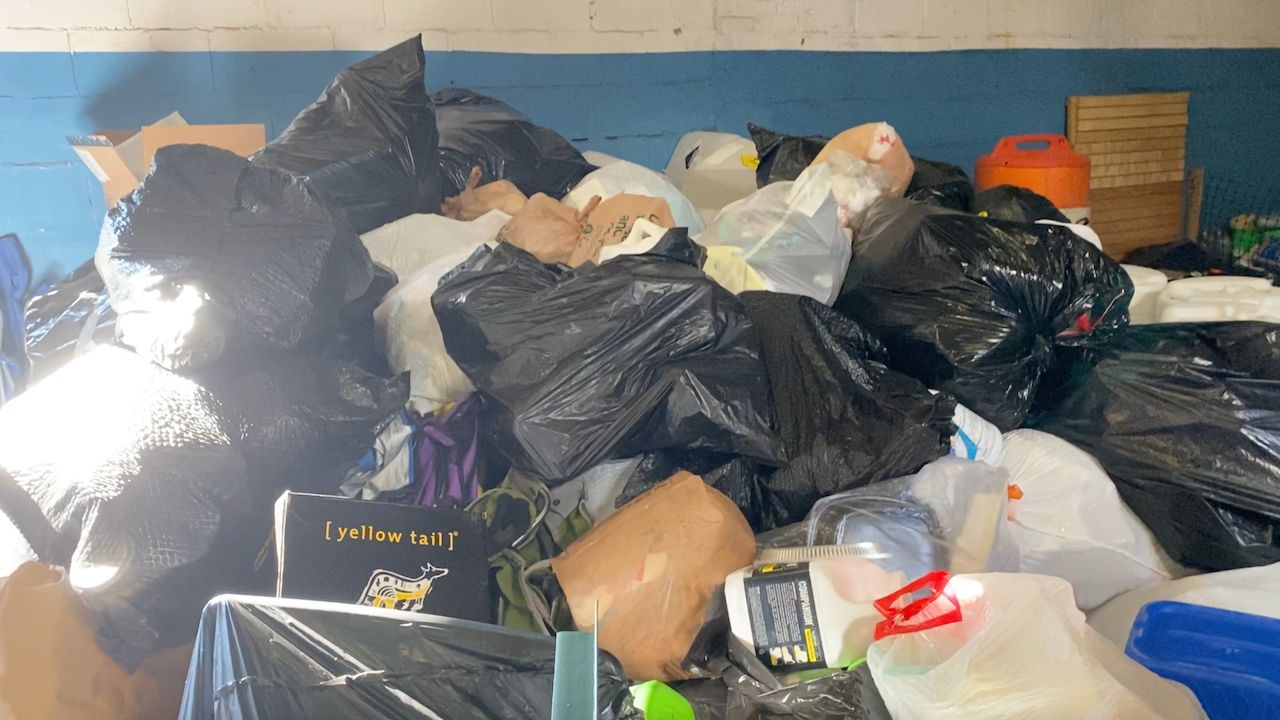
When the plastic arrives at the R.A.W. warehouse, Riggs and Aguilar have to sort it based on tiny numbers at the bottom of the plastic items. There are seven different types of plastic, and each type is recycled differently.
"A lot of people just think plastic is plastic, and it's not,” Riggs said. “It's just kind of an umbrella term to cover all these different types that have to be separated and cleaned properly."
One of the biggest issues is how time consuming the recycling process can be. For example, to properly recycle a simple plastic water bottle, Riggs and Aguilar need to separate three different types of plastic on it. The clear bottle is number one, the label is number four and the cap is number two.
After it's separated, the plastic is shredded into pieces and melted down to create beautiful new items, such as flower pots, jewelry, keychains and bowls.
Aguilar says some of the plastic is very sturdy and strong. He hopes that in the future, R.A.W. Plastic can make plastic building materials such as tile, brick and two-by-fours.
“Recycling should be the last option,” Riggs said. “You want to reduce, reuse and then recycle is how you want to approach plastic.”
Riggs says their work is only a small portion of what needs to be done globally. It may be difficult and time consuming, but they are making a big impact in Pitt County and are looking for ways to expand into North Carolina and beyond.
“Plastic is a global problem that we need to solve on a local level first,” Riggs said. “Because once it's out in the ocean, once it's out there, it's way too hard to get it back and deal with. If we can stop it here before it enters our waterway, it's a lot better.”
R.A.W. Plastic sells their repurposed plastic products online and at festivals and events around the state.
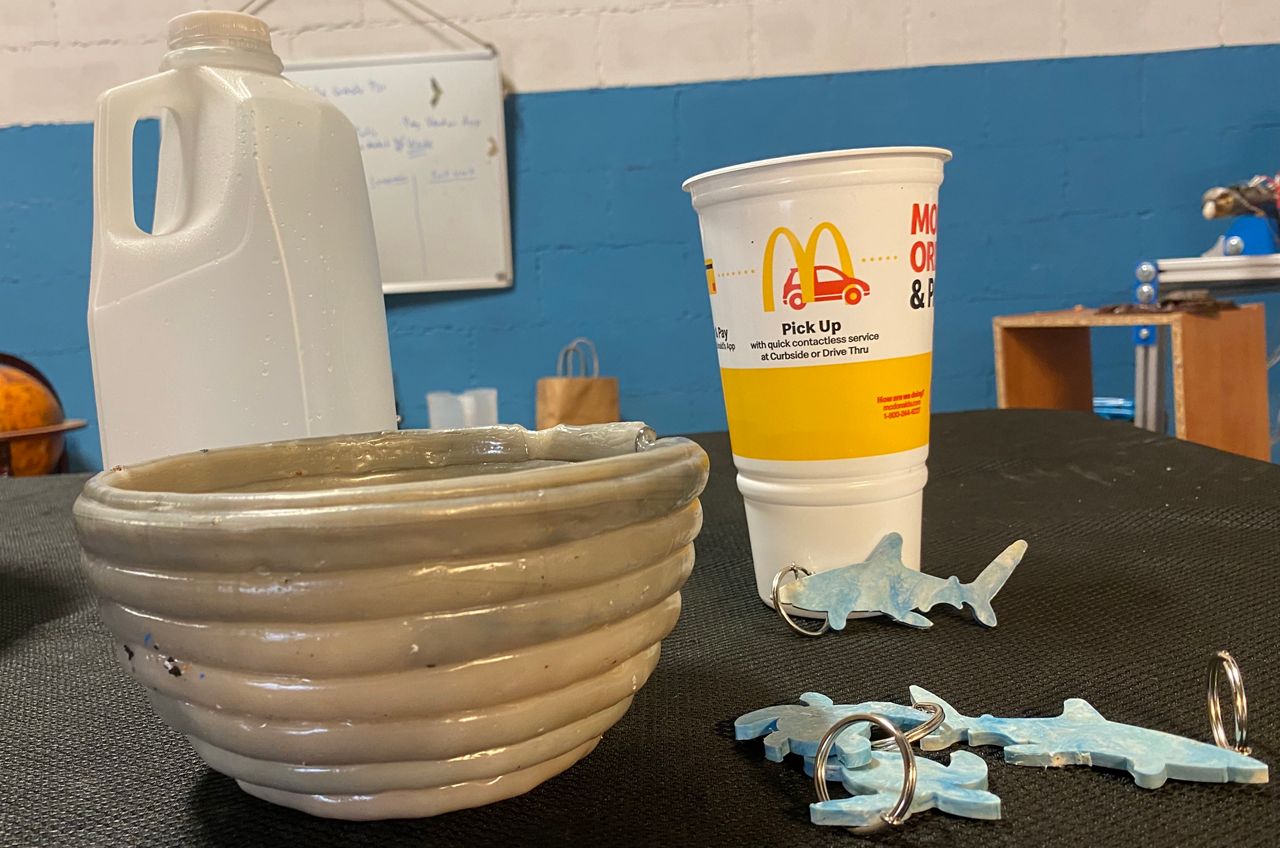






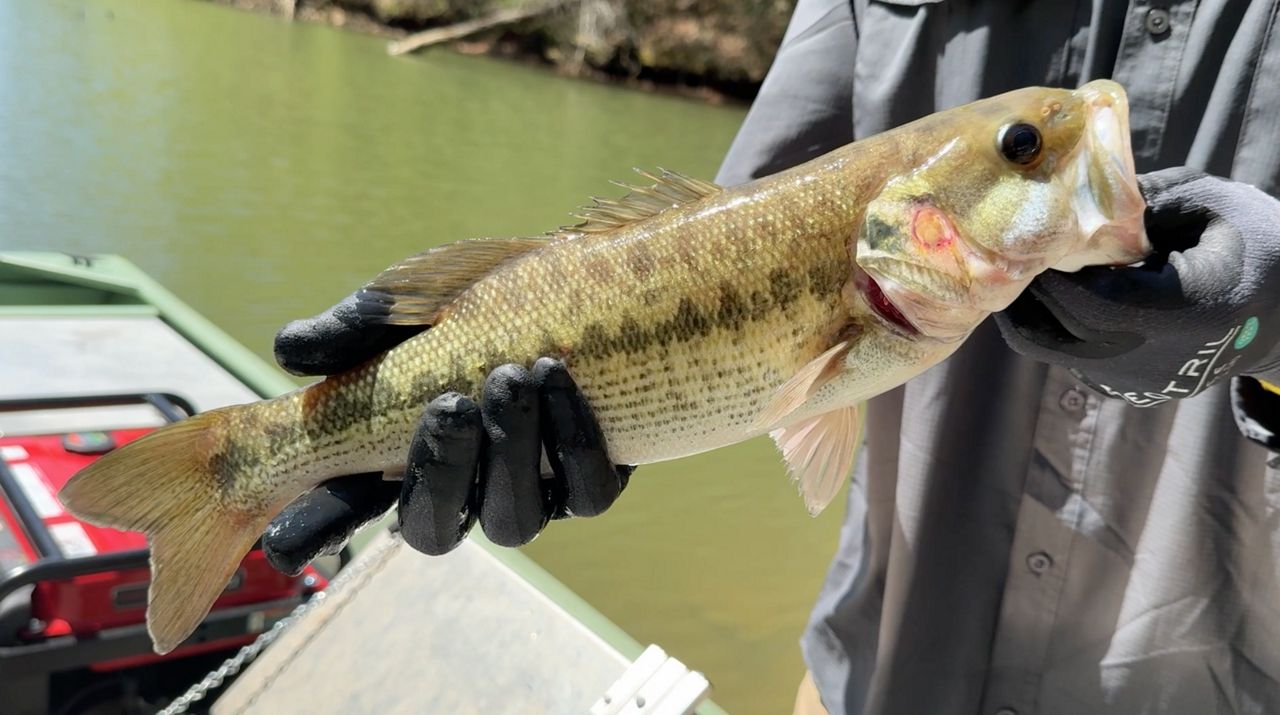
)
